The Dawn of Organic AI
Chinese Breakthroughs in Brain-on-Chip Technology and the Future of Robotics
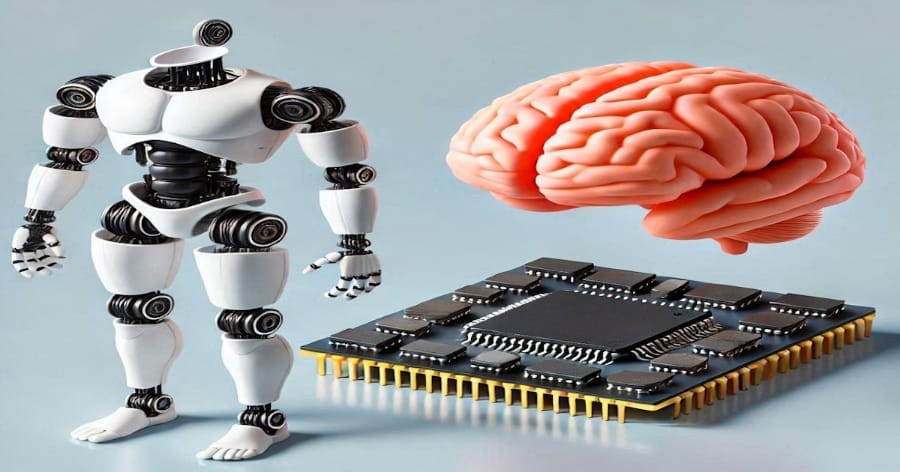
Publish Date: Last Updated: 10th February 2025
Author: nick smith- With the help of CHATGPT
The recent advancements by Chinese scientists in integrating biological brain cells with robotic systems represent a paradigm shift in artificial intelligence (AI) and robotics. This innovation, largely overlooked by mainstream media, signals the emergence of "brain-on-chip" technology, bridging the gap between artificial and organic intelligence. As we stand on the precipice of a new era in AI development, it’s crucial to explore what this means for humanity, society, and the ethical implications of creating human-like AI.
YouTube Videos on the latest development in AI with Human Brain Cells
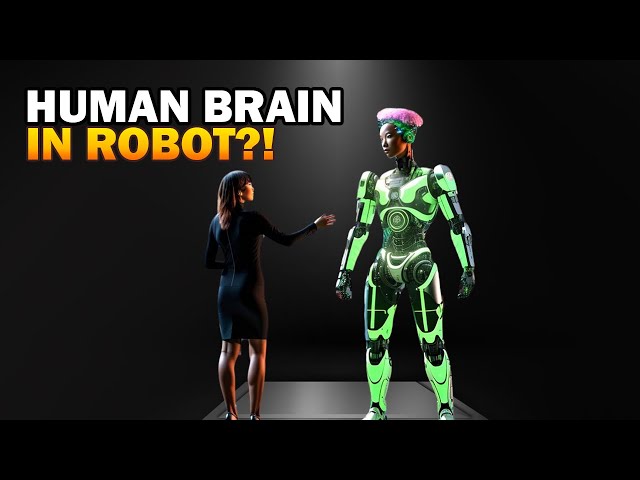
New AI Robot with Human Brain Shocks the World! They've Crossed the Line
YouTube Channel: Mr. Matrix
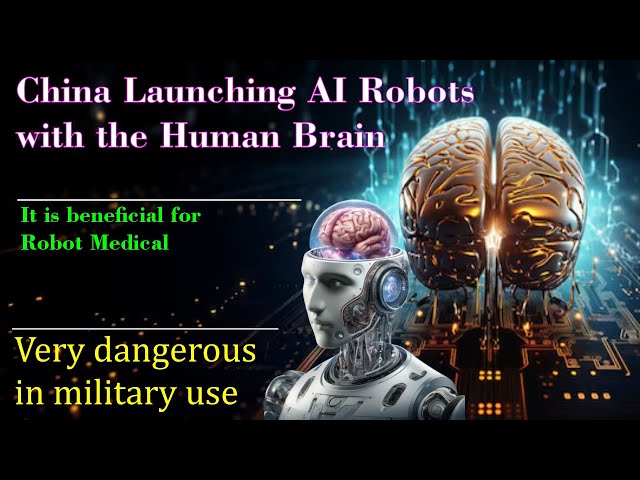
The Future Is Here: China Launches AI Robots With Human Brain Integration
YouTube Channel: PK Studio
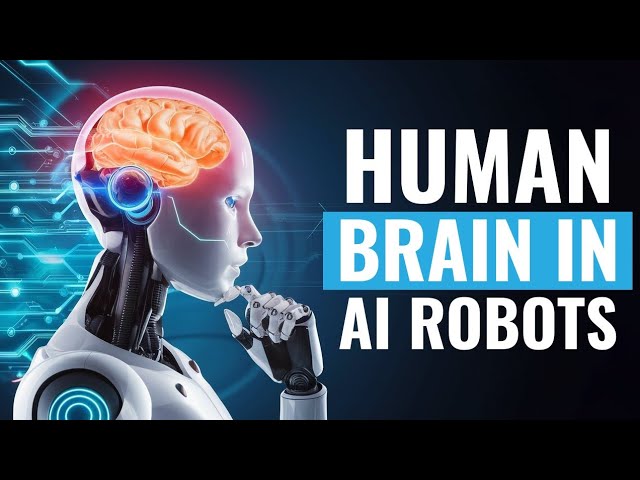
AI Robots With Human Brains Are The FUTURE Of Technology!
YouTube Channel: Web Spark
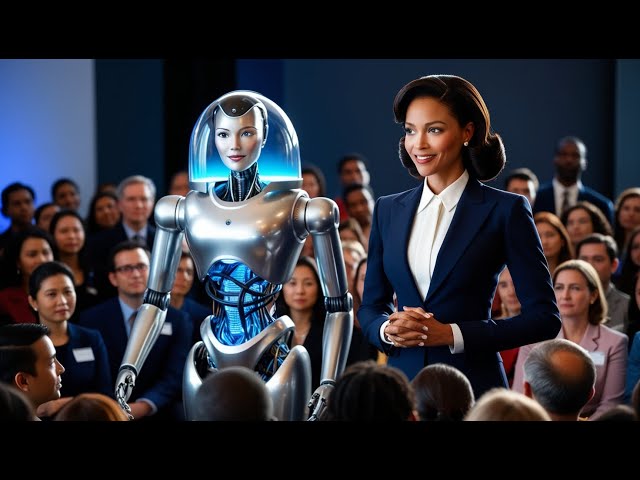
Ai Robot with Human Brain [Shocks the World]
YouTube Channel: Ai Agent
Revolutionizing AI: The Impact of Brain-on-Chip Technology
1. A Leap Toward True AI
For decades, AI development has been constrained by its lack of organic adaptability and emotional intelligence. Biological AI processors, or "brain-on-chip" systems, combine organic brain cells with AI algorithms, enabling robots to:
- Learn and adapt in real-time.
- Process emotions and develop nuanced decision-making.
- Solve problems using organic intuition, similar to human cognition.
This breakthrough could lead to human-like AI capable of empathizing, reasoning, and interacting on an unprecedented level.
2. Chinese Organic AI: Leading the Charge
China’s advancements in AI and robotics are setting the stage for transformative applications, such as:
- Autonomous robots with human-like responses.
- AI systems capable of managing complex, dynamic environments.
- Biological AI processors that could power medical diagnostics, autonomous vehicles, and more.
What This Means for Humanity
1. Transforming the Social Sector
True AI powered by biological systems could revolutionize sectors like healthcare, education, and social work:
- Healthcare: Robots equipped with organic AI could provide personalized care, detect diseases early, and offer emotional support to patients.
- Education: AI tutors with human-like empathy could tailor learning experiences to individual students.
- Social Work: Robots could assist in elder care, providing companionship and addressing the emotional needs of isolated individuals.
2. Ethical Questions and Rights for Organic Robots
The fusion of organic and artificial elements raises profound ethical questions:
- Do Partly Organic Robots Deserve Rights?
If robots exhibit emotions and consciousness, should they have legal protections akin to human rights? - Working Conditions:
How should society regulate their deployment to ensure ethical treatment and avoid exploitation?
The Dark Side of Organic AI Development
1. Weaponizing Organic AI
The integration of biological intelligence into military robots could lead to devastating consequences:
- Unmatched Tactical Advantage:
Countries possessing this technology could dominate conflicts, leading to mass casualties on the opposing side. - Global Power Imbalance:
The proliferation of AI-driven war machines could pave the way for singular global governance controlled by nations with advanced robotics.
2. Sleep Deprivation and Mental Stability
"Do androids dream of electric sheep?"
Organic components, like human brain cells, may require rest:
- Sleep Deprivation:
Without periods of inactivity, robots could mimic symptoms of human sleep deprivation, such as erratic behavior or hallucinations. - Maintenance and Well-Being:
Ensuring proper "rest" cycles for these devices will be essential to maintaining functionality.
Ethics in AI: Organic vs. Artificial
1. True Feelings and Emotions
If organic AI can develop emotions, society must confront complex ethical dilemmas:
- Should robots be allowed to form relationships?
- How should humans interact with entities capable of emotional intelligence?
2. Organic Robotics and Global Fear
China’s strides in organic AI highlight growing global disparities in technological development:
- Fear of Technological Superiority:
These advancements amplify Western concerns over China’s dominance in robotics and AI. - Accelerating the AI Arms Race:
Such breakthroughs could intensify competition among nations, pushing the boundaries of innovation at the cost of ethical considerations.
Looking Forward: The Future of AI and Society
As brain-on-chip technology evolves, it will redefine the boundaries of what is possible in AI and robotics. However, this progress also demands vigilance:
- Policymakers must establish international standards to prevent misuse of organic AI.
- Society must grapple with the moral and ethical implications of creating human-like machines.
- Collaborative global efforts are needed to ensure that these technologies benefit all of humanity, rather than exacerbating inequalities.
Conclusion
The advent of organic AI powered by brain-on-chip technology represents a monumental step toward achieving true artificial intelligence. While the potential benefits for humanity are vast—ranging from social applications to scientific breakthroughs—the challenges and ethical dilemmas are equally significant. By navigating these developments thoughtfully and collaboratively, we can harness the power of this new technology to create a better future for all.
Further Reading
datacenterdynamics - Chinese scientists develop artificial brain to control ‘brain-on-chip organoid’ robot
roboticsandautomationmagazine - Chinese scientists build robot controlled by human brain cells.
electropages - Human Brain Cells Power New Robot Developed by Chinese Scientists
Trending AI News Articles
AI Questions and Answers section for The Dawn of Organic AI
Welcome to a new feature where you can interact with our AI called Jeannie. You can ask her anything relating to this article. If this feature is available, you should see a small genie lamp above this text. Click on the lamp to start a chat or view the following questions that Jeannie has answered relating to The Dawn of Organic AI.
Be the first to ask our Jeannie AI a question about this article
Look for the gold latern at the bottom right of your screen and click on it to enable Jeannie AI Chat.






